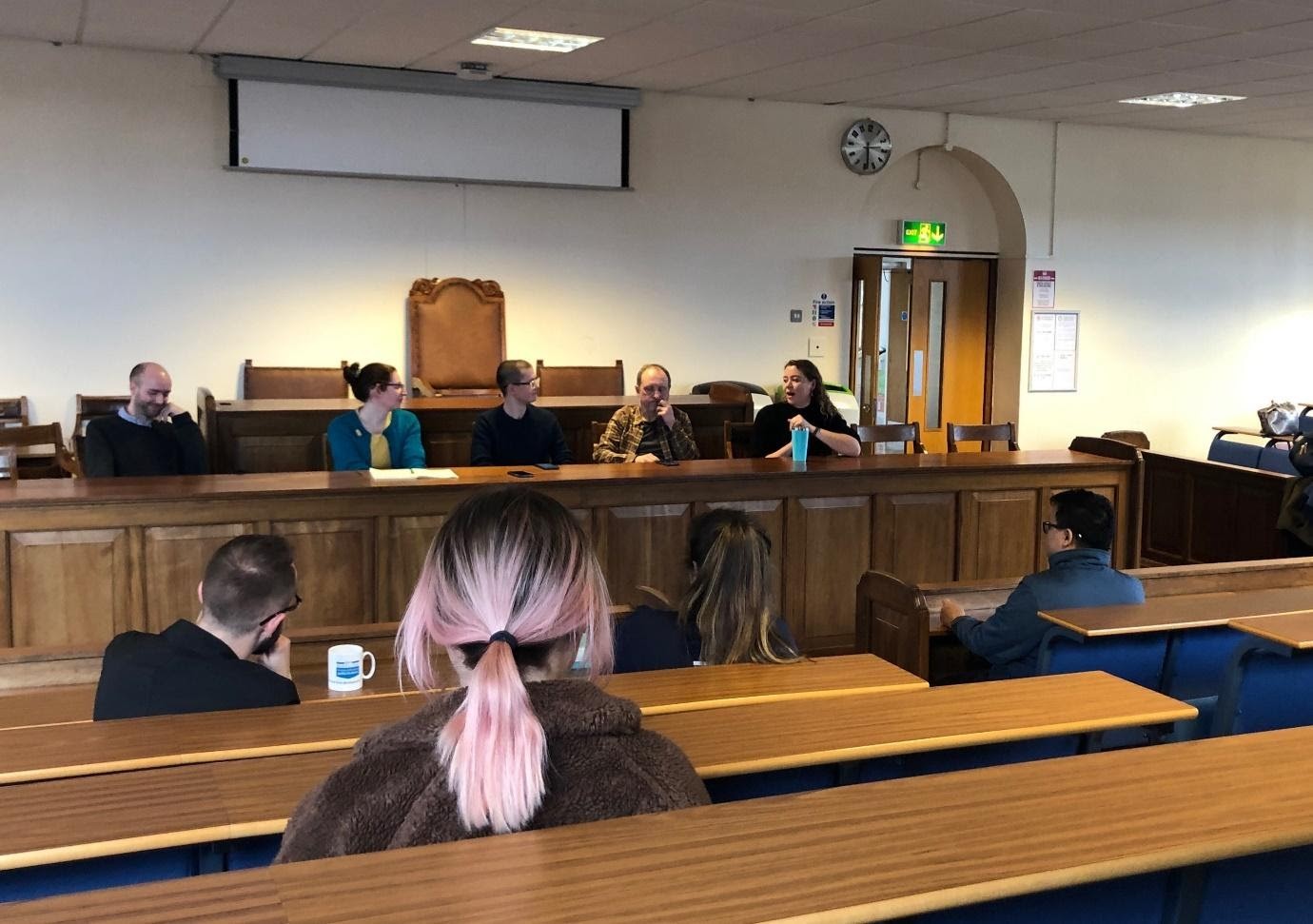
News Reporter Adam Toms attended the BUCU Question and Answer session on their strike action
Striking staff and postgraduate students answered questions from students on Tuesday afternoon in the Guild Council Chambers regarding their strike stance.
The event was organised by Birmingham’s branch of the UCU (University College Union) and Student Staff Solidarity group at the University of Birmingham (UoB).
The event was chaired by Owen Shann, a Student Staff Solidarity member who was at the time standing for Guild President on a radical manifesto including the removal of Professor Sir David Eastwood as Vice-Chancellor.
He was joined by Dr. Amy Burge, English Lecturer and BUCU Officer; Dr. Mark Summerfield, IT services & BUCU Pensions Officer; Katie Oliver, Geography PhD student and BUCU member; and Dr. Tom Cutterham, History Lecturer and BUCU Secretary.
Asked how students could support the strike, Cutterham suggested that they bring baked goods to picket line and Oliver urged students to join staff and PGTAs on the picket line in the first place. Burge mentioned how there were ways for students to enter the University without crossing picket lines and suggested that disciplinary procedures regarding attendance had been informed.
A question then came from incumbent Guild President, Joshua Williams: ‘What measures would the panel like to see the Guild take as they announce their support of strikers?’
Summerfield suggested that Guild contact with university management would be a ‘useful starting point’ and would enable strikers to communicate their case to students as Cutterham emphasised how important this was.
“Why should students care about the strikes?
A somewhat confrontational online question followed, which asked why the UCU were orchestrating strikes when the University was paying a living wage.
Cutterham emphasised how the money being paid was not enough for a ‘decent life’ and that the University is not signed up to the national Living Wage Foundation because it ‘could rise at any point.’
Katie then presented the PGTA’s point of view, stating that she had personally only been paid £16 per hour to teach and was not paid for prep hours. She then said that this was against University policy.
UoB have emphasised how they take payment issues ‘very seriously’ and that they ‘know that ensuring people are paid on time and correctly is something that we must always get right’.
Next, a query was discussed that had been posted under the online pseudonym ‘Mr. Professor Sir David Eastwood,’ reading simply ‘Why don’t you like me?’
Burge took care to reiterate that she did not know the Vice-Chancellor personally, and she was sure that he was very nice. Nevertheless, she did think he was disconnected from staff and student concerns, noting that previous Vice-Chancellors had visited picket lines during past strikes while Eastwood had not.
Burge said that this concern was consolidated by the fact that he was the sixth highest paid Vice-Chancellor in the country, the first outside of London and Oxbridge.
Eastwood has stated in the past that he does give a proportion of this wage away and UoB have justified his wage by describing the Vice-Chancellor as a ‘highly-successful and experienced leader.’
Perhaps the most impactful contribution from the audience came later after an attendee asked for the panel’s thoughts regarding the fact that they often feel too unsafe on campus.
“Students should care because how can they not?
Burge said that she was very sad to hear that and responded by recounting her own experience of ‘finding those communities’ outside her own department via UCU action.
Oliver then reassured the audience that ‘there are good people […] you’re not on your own’ and ‘people will help you.’ She then added that she ‘know[s] too many people in this situation.’
Shann then asked ‘why should students care about the strikes?’
Oliver responded passionately by saying, ‘students should care because how can they not?’.
Burge emphasised how students would have a better experience at university if their workload was lessened. ‘We could have more meaningful conversations’ and ‘more time with individual students’ whilst testing new innovative assessment and teaching methods, she said.
Lastly, the panel defended the strikes after concerns from the audience regarding disruption to student experience.
Oliver suggested that ‘organisation and solidarity’ was improved by last year’s strikes and as a consequence she felt she had acquired the courage to be on campus again.
Burge then highlighted the University’s lack of action regarding the closure of the gender and ethnic pay gaps.
She also sought to reassure the audience that action other than striking had been sought by today’s strikers. This included resignations, not completing voluntary work, not covering for colleagues and not re-arranging teaching hours.
The strikes are set to continue until the end of week nine unless an agreement is reached between the Union and the University.

Comments